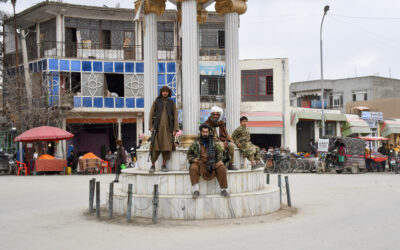
The Long Arm of China’s Security Services
SUBSCRIBER+ EXCLUSIVE REPORTING — When Chinese President Xi Jinping came to San Francisco last November to meet with President Joe Biden, Chinese pro-democracy activists in […] More
Getting North Korea to agree to the complete, verifiable and irreversible dismantlement of its nuclear weapons and nuclear weapons facilities will be a difficult task for President Donald Trump. However, the progress made during the past four months with North Korea should give us hope that it can be accomplished.
A combination of powerful sanctions and intimidating joint U.S.-ROK military exercises contributed to Kim Jung Un’s decision to seek and pursue improved relations with South Korea and the United States.
North Korea’s nuclear and missile advances in 2017 made him feel safe enough to halt all nuclear tests and intermediate and long-range missile launches, with Kim in his New Year’s address claiming that North Korea “possesses a powerful and reliable war deterrent.”
Having this so-called nuclear deterrent will now permit Kim to focus on North Korea’s ailing economy. A strategy to address these economic challenges and potential military threats is the normalization of relations with the United States.
An impatient Kim moved quickly on this goal, with the invitation to President Moon Jae-in for a summit and President Donald Trump for an unprecedented bilateral meeting. Both presidents accepted these invitations and the ball is now in Kim’s court.
Will Kim dismantle all of his nuclear weapons and nuclear weapons facilities in exchange for security assurances and eventual normal relations, or will he insist on retaining some nuclear weapons? Will Kim agree to an intrusive verification regime to ensure timely compliance with a nuclear dismantlement agreement? These and other questions will be pursued at the historic upcoming meetings with Kim Jung Un.
The April 27 summit of South Korea’s Moon Jae-in and North Korea’s Kim should be a success. It appears that Kim will publicly commit North Korea to eventual denuclearization of the Korean Peninsula, while embracing Moon’s efforts to improve inter-Korean relations: a peace treaty to end the Korean War; reuniting separated families; resuming tourism to the North and providing the North with significant economic development assistance.
Although Kim’s recent decision to halt all intermediate and long-range missile launches and nuclear tests will help ensure that the public in South Korea is supportive of Moon’s efforts to normalize relations with the North, there will be pressure on Moon to get North Korea to also halt all short- and mid-range missiles that are a threat to South Korea and Japan.
A successful North-South Summit will help to ensure that Trump’s upcoming meeting with Kim will be a success. Kim will agree to verifiable denuclearization of the Korean Peninsula, in return for security assurances, liaison offices in the respective capitals and the establishment of formal diplomatic relations with the U.S.
It’s very unlikely that Kim will request the removal of U.S. military personnel from South Korea or the cessation of U.S.-South Korea joint military exercises at this meeting with the U.S. president. Eventually, this subject will come up, with North Korea making the case that a normalized relationship with North Korea obviates the need for military personnel in South Korea and joint military exercises.
However, having the unprecedented honor of meeting with a sitting U.S. president, Kim will work hard to ensure that he doesn’t raise any subject that could upset Trump. Kim will make it clear that his focus now is improving North Korea’s economy and providing its 25 million people with a better life.
Kim Jung Un will also spend some time explaining that its nuclear weapons are for defensive purposes, his so-called nuclear deterrent, given the previous hostile policy of the United States. Kim will make the case for expedited formal diplomatic relations with the U.S. and a peace treaty to end the Korean War.
In that context, he will have to be responsive to requests for the immediate release the three Americans detained in North Korea and address U.S. concerns about human rights issues in North Korea, as well as the need to immediately cease the counterfeiting of U.S. currency, cigarettes and pharmaceuticals.
The principal challenge will be to get North Korea to understand that their likely request to retain a few nuclear weapons will never be acceptable. North Korea retaining even a few nuclear weapons will incite a nuclear arms race in the region, with the proliferation challenge of ensuring that nuclear weapons and fissile materials are not provided to rogue states and non-state terrorist actors.
This has been explained to North Korean officials since 2003, when the Six Party Talks process was established. My first meeting in 2003, as a negotiator, dealt with this issue. My North Korean counterpart said North Korea wanted a normal relationship with the U.S. and should be accepted as a nuclear weapons state, as we did with Pakistan. Like Pakistan, he said North Korea would be a good friend of the U.S.
He was told this would never happen; complete, verifiable and irreversible dismantlement of its nuclear weapons and nuclear weapons facilities was our unwavering policy.
North Korea probably will persist in trying to get the U.S. to permit North Korea to retain a “few” nuclear weapons, even after relations are normalized. That would be a mistake.
Related Articles

SUBSCRIBER+ EXCLUSIVE REPORTING — When Chinese President Xi Jinping came to San Francisco last November to meet with President Joe Biden, Chinese pro-democracy activists in […] More

SUBSCRIBER+EXCLUSIVE EXPERT PERSPECTIVE — More than two years after its withdrawal from Afghanistan, the U.S. still does not have a clear way forward in the […] More

SUBSCRIBER+ EXCLUSIVE REPORTING — Ukrainians greeted Saturday’s long-awaited House passage of $60.8 billion in aid with justifiable jubilation. For months, their soldiers, civilians, and political […] More

SUBSCRIBER+ EXCLUSIVE REPORTING — A race for control of space is underway, and just as on earth, the U.S. and China are the top competitors. […] More

SUBSCRIBER+ EXCLUSIVE REPORTING — For nearly a week, the Middle East and much of the world were on a knife’s edge, waiting for a promised […] More

BOTTOM LINE UP FRONT – Less than one week after Iran’s attack against Israel, Israel struck Iran early on Friday, hitting a military air base […] More
Search